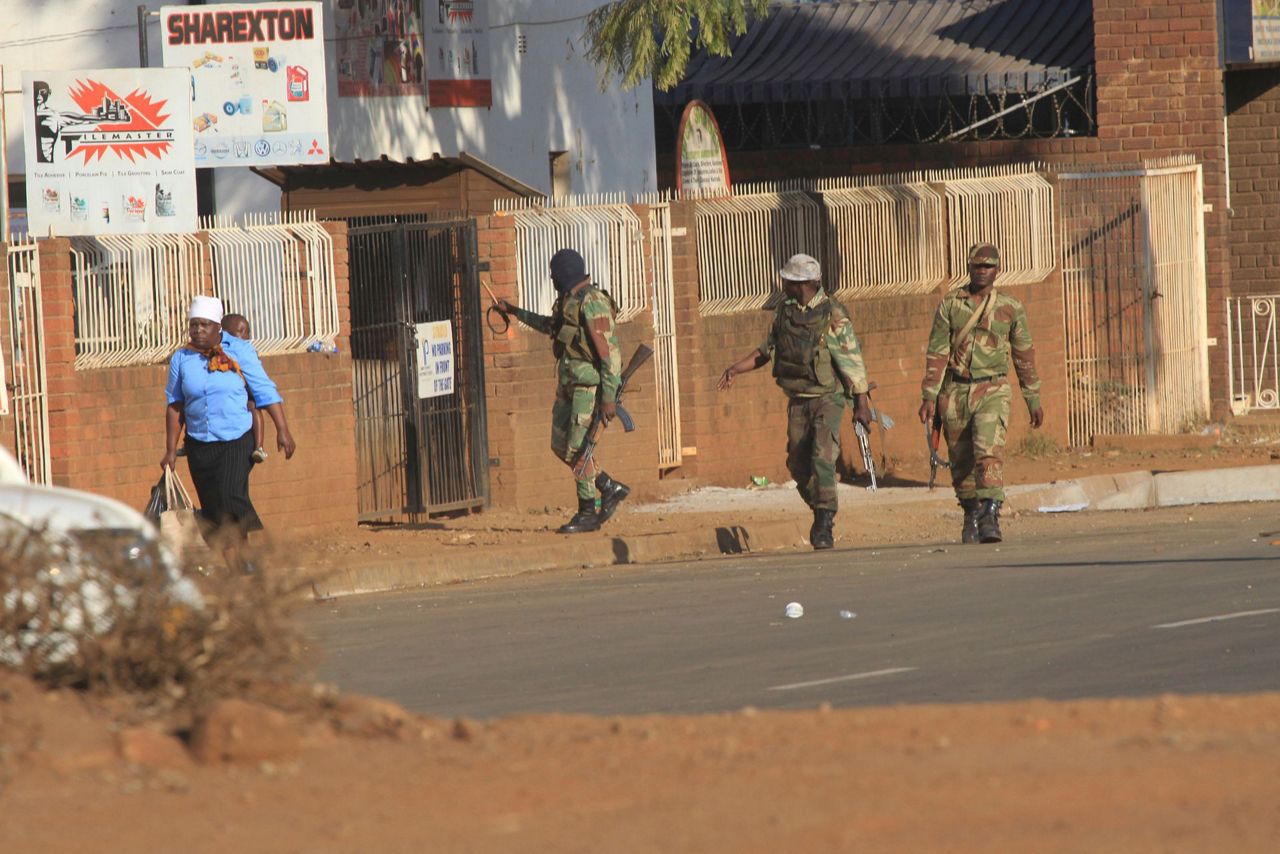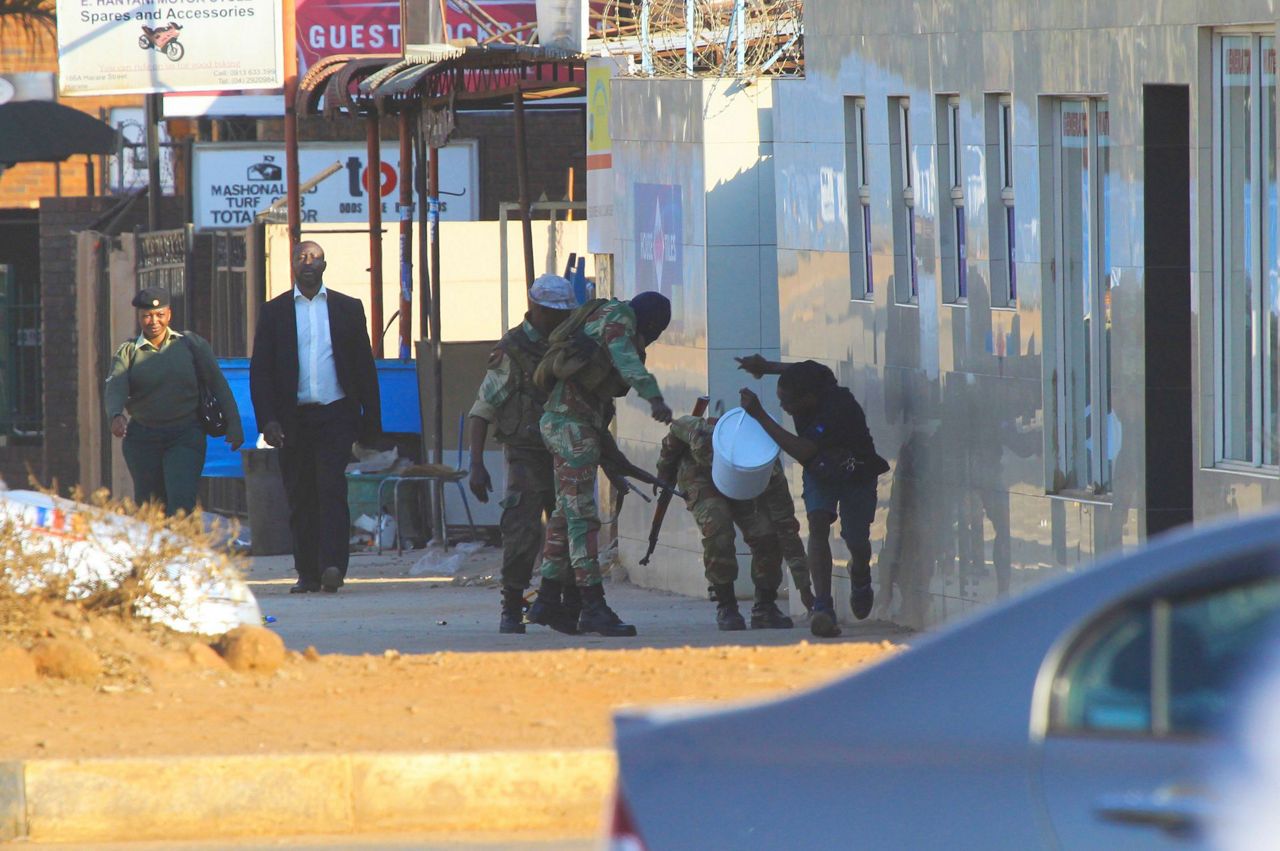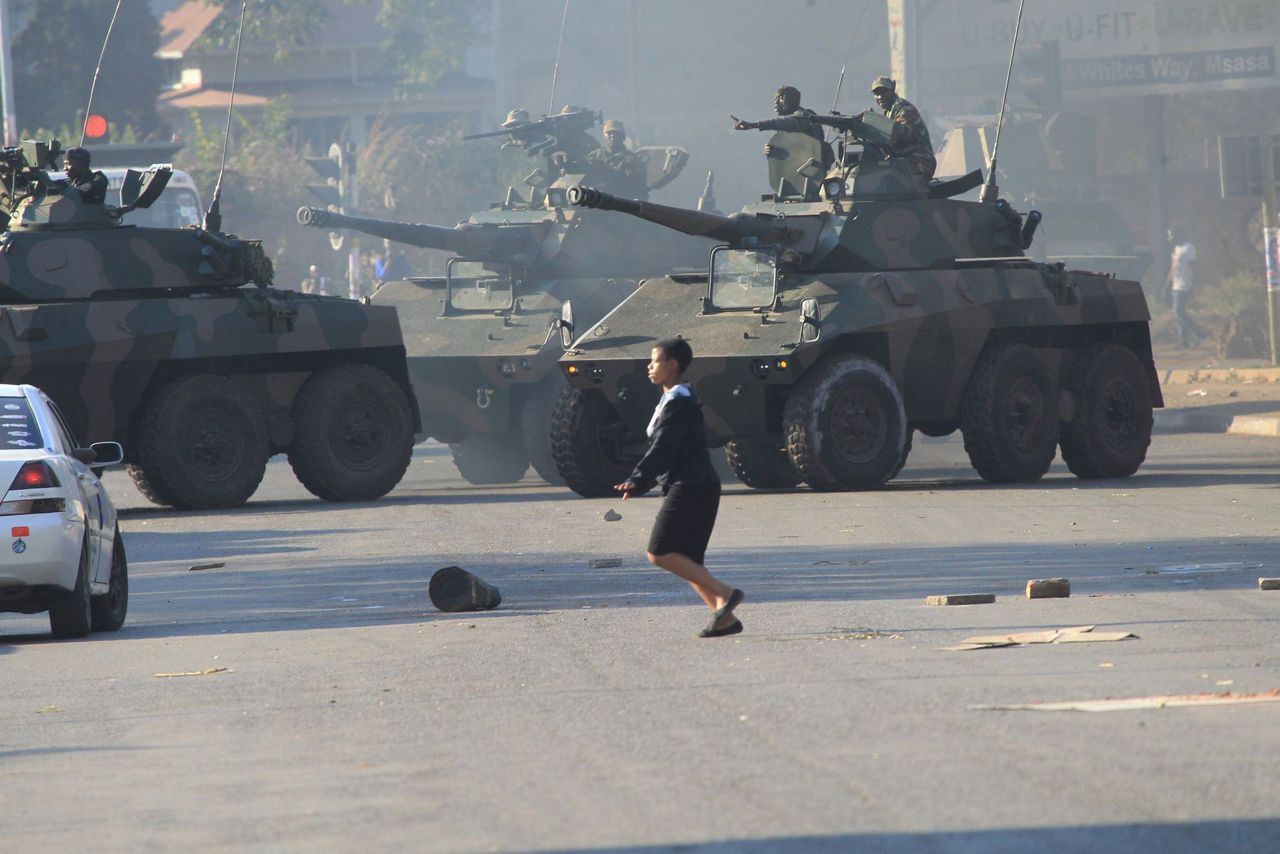HARARE, Zimbabwe (AP) — Zimbabwean soldiers and police used "unjustified and disproportionate" force to kill 6 people during election protests in August, according to an official report released Tuesday.
The report was widely seen as a test of whether the government of President Emmerson Mnangagwa would disown the kind of harsh action by security forces that was associated with the long rule of his predecessor, Robert Mugabe.
The sharp criticism of the military and police in the commission of inquiry report reflected a more open discourse, even at the highest levels of government, in Zimbabwe since Mugabe was forced from office in November 2017.
Still, the report's recommendation that soldiers and police who broke codes of conduct should face "internal" discipline raised questions about whether any would face significant punishment for the Aug. 1 killings.
The report also said opposition leaders had incited violence ahead of the deployment of soldiers in the capital, Harare. The security forces suppressed protests against delays in announcing the results of Zimbabwe's first elections without Mugabe on the ballot. Six people were killed as gunfire erupted in the streets.
"Given that property and lives were under threat, and in light of the inability of the police to disperse the protesters, the firing by the army and the police of warning shots in the air was proportionate," said Mnangagwa, reading from the commission of inquiry report at a news conference on Tuesday.
"However, the use of live ammunition directed at people, especially when they were fleeing, was clearly unjustified and disproportionate," he said.
The deployment of the military was lawful and "unavoidable" to protect property and lives after the police had been overwhelmed by protesters, according to the report. It described the protests as "pre-planned and orchestrated."
Opposition spokesman Jacob Mafume said the findings that implicated opposition leaders in violence were absurd.
"The violence was perpetrated by soldiers who shot at protesters, so in what way would election speeches by our leaders incite a soldier to kill? It is a bizarre finding not supported by facts," Mafume said.
Military generals who appeared before the commission in November denied that soldiers were responsible for the deaths, including some who were shot in the back.
The commission of inquiry was headed by former South African president Kgalema Motlanthe, a generally respected figure whose appointment lent some stature to the investigation.
Mnangagwa said that his government will study the report before deciding on its next steps.
The crackdown in Harare had led to speculation about whether Mnangagwa, a former Mugabe confidant with close ties to the military, was aware that the army was moving in or was in fact not in full control of the security forces.
The commission of inquiry report addressed that debate, saying the military deployment was done in line with the Constitution. During earlier hearings, the military and other government officials said Mnangagwa gave "verbal" authority for the deployment.
___
Follow Africa news at https://twitter.com/AP_Africa
Copyright 2018 The Associated Press. All rights reserved. This material may not be published, broadcast, rewritten or redistributed.





